Yemenis, No Matter What
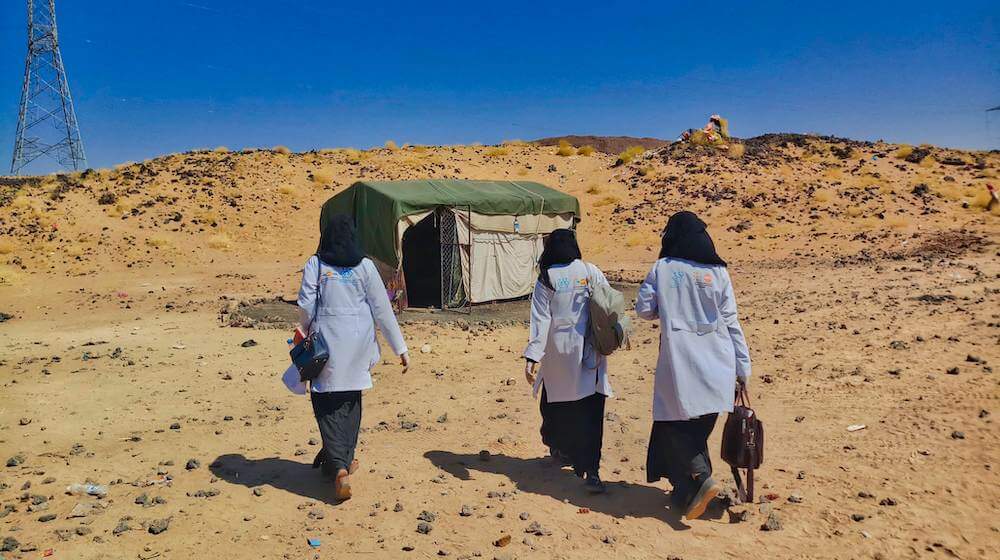
UNFPA has been providing sexual and reproductive health care to the Yemeni people despite intense challenges and a funding shortfall. Keep reading to learn more about what is going on in Yemen.
Situation overview
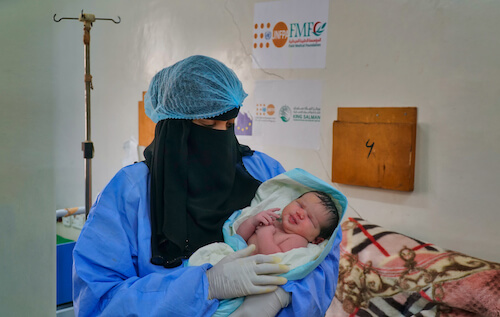
Conflict in Yemen began in 2011. Then-President Ali Abdullah Saleh gave his office to his deputy, Abdrabbuh Mansour Hadi, in response to the Arab Spring movement. However, as president, Hadi failed to address a number of issues, including unemployment, food security, and separatist movements. In 2014 and 2015, Houthi rebels, part of the Shia Muslim minority in Yemen, aligned with former President Saleh and took over Yemen’s capital city of Sana’a.
Since then, the Houthis, the Yemeni Government, and other internationally-backed groups have been fighting for control. As the conflict has dragged on, more and more Yemenis have been left without food, health care, work, or safe places to shelter.
Today, Yemen is the world’s worst humanitarian crisis. 24 million Yemenis– or 80 % of the population – are in need of some form of humanitarian assistance or protection. The situation has further deteriorated due to COVID-19, flooding, and currency collapse. A shocking 13.5 million people are at risk of starvation and that number could increase to 16 million+ this year.
Tragically, even as need is increasing, aid organizations are less able to provide care as funding shortages and ongoing conflict has made their work nearly impossible. UNFPA, for example, faced a funding shortage of over $25 million in 2020. As a result, 140 of 180 UNFPA facilities to closed mid-year.
Yemen’s reproductive health needs and challenges
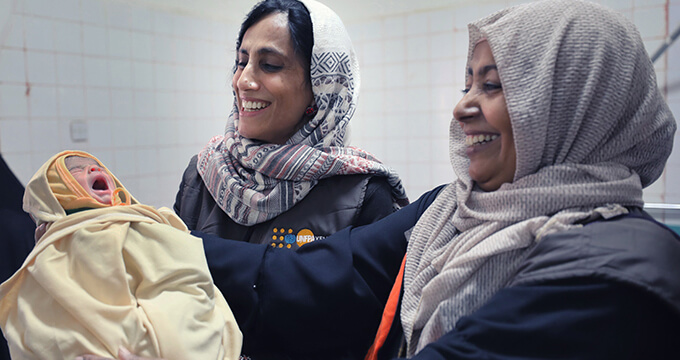
UNFPA is the only provider of sexual and reproductive health services in Yemen. 6 million women and girls of reproductive age are in need of aid, including 1.2 million malnourished pregnant or breastfeeding women. Only 1 in 5 health facilities offers maternal and childbirth care and 60% of births occur at home. This shortage of facilities contributes to the high rate of maternal and child death in Yemen. One woman and 6 newborns die every two hours during childbirth. Further, war, displacement, food insecurity and other stressors have left 1 in 5 Yemenis with mental health disorders. This number has almost certainly risen over the last year.
UNFPA and other aid organizations will have to overcome hostile environments, funding gaps, a lack of health care workers, increasing restrictions, transportation delays, and other obstacles to continue providing the lifesaving care that Yemenis desperately need and deserve.
What UNFPA is doing
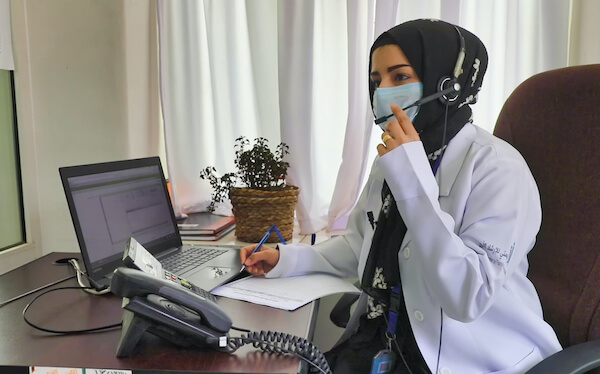
Despite the clear difficulties, UNFPA has not turned its back on women, girls, and babies in Yemen. By the end of 2020, UNFPA supported 101 health facilities. At these clinics, 1,262,346 people received reproductive health services. 155,231 women safely gave birth and another 25,100 women had emergency Caesarean sections at UNFPA facilities. UNFPA supported 51 women-friendly safe spaces where women and girls can be safe from violence. They also learn income-generating skills like sewing, receive health care like counseling and family planning, and build community.
To respond to COVID-19, UNFPA operated 18 hotlines that provided information on the preventing the spread of COVID-19. The hotlines were also a lifeline for survivors of violence in need of tele-counseling. UNFPA provided 80 ventilators for critically-ill COVID patients and supplied health care workers with personal protective equipment like masks and gloves. UNFPA trained 300 midwives in disease prevention tactics.
In coordination with the World Food Program and UNICEF, UNFPA led the distribution of rapid response kits to vulnerable families. The kits contain ready-to-eat food supplies, basic hygiene kits for clean water, and dignity kits for period management and safety.
The path forward
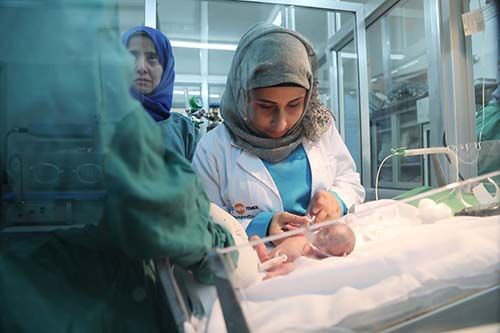
From 2020, we know that lives are saved immediately after funding is received. In just two of many tragic cases, Mariam and Zainab bled to death after giving birth. Both women had been receiving care at UNFPA facilities, but by the time they went into labor, those clinics had closed. Mariam left behind four daughters, while Zainab’s daughter Safiya will never know her mother.
Addressing the situation in Yemen will take a massive amount of global coordination and aid, but it can be done. UNFPA appealed for $818 million in humanitarian funding for 2021. $100 million of that funding is needed for relief in Yemen.
With hope and a little help from generous donors, UNFPA can ensure that every Yemeni woman, girl, and baby has the lifesaving reproductive health care they need.
USA for UNFPA’s No Matter What series demonstrates UNFPA’s commitment to provide every woman and girl with lifesaving reproductive health care, no matter what. Each month, we will highlight a group of people who face specific challenges to accessing sexual and reproductive health care. To receive our No Matter What series and other publications directly to your inbox, sign up here.